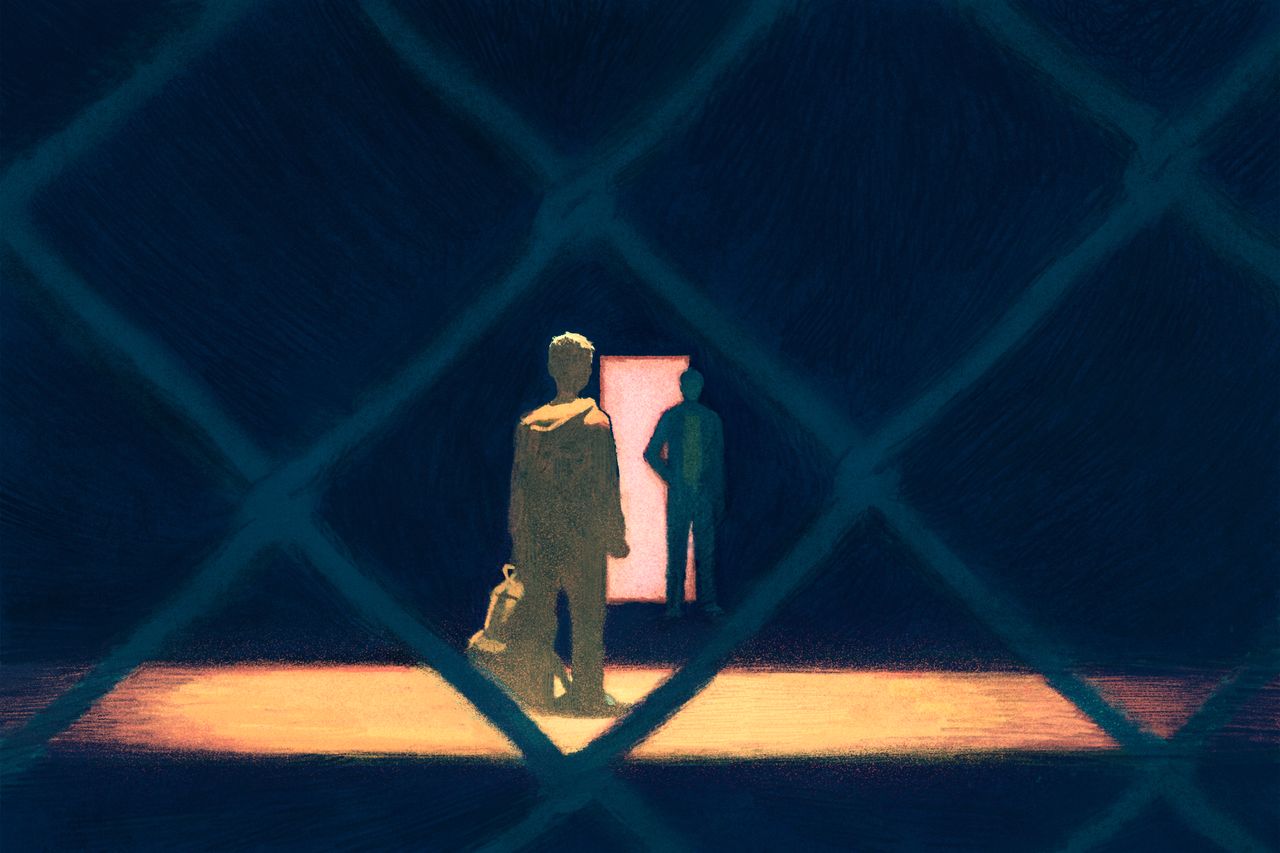WASHINGTON—In 2021, when the new Biden administration was struggling to cope with a sudden influx of unaccompanied migrant children at the U.S.-Mexico border, the government repeatedly overrode the concerns of lower-level workers who warned about placing them in certain households, documents and interviews show.
“It does not appear safe for the minor to be released to a home environment that was not fully assessed,” a case worker wrote about a child slated to live in a hostel-like home in Florida with at least three adults. A few days later, an official dismissed the recommendation to reject the proposed guardian, according to internal government memos.
At another facility in Pomona, Calif., about 30 miles east of Los Angeles, more than 100 children that summer were sent to temporary guardians who were issued denials early in the process by case coordinators, according to a review of internal government data that tracks unaccompanied children, emails and other communications, and interviews with caseworkers.
About two dozen more denials were overturned because of clerical errors or issues such as missing fingerprints that were resolved, records show. But many of the others were approved with scant details explaining why. Some of those home addresses were tied to histories of criminal activity or other behavior that indicated the possibility the children would be put to work, interviews and records show. The Wall Street Journal couldn’t determine what happened to the children after they left the facility.
The findings show that Biden administration officials sometimes overlooked concerns about potential guardians as they faced a political crisis over an unprecedented surge of unaccompanied minors soon after taking office. Officials said at the time they wanted to avoid the images that had plagued the Trump administration of children in severely congested facilities—widely derided as “kids in cages.” At worst, children held in overcrowded detention centers have grown severely ill or even died.
Even as President Biden faces calls to exit from the race because of his age, immigration has remained one of the top issues for November’s election. Biden has tacked to the right on many issues relating to the border, including ordering last month that most migrants who cross the border illegally will be barred from asylum. Illegal border crossings are down by more than half this year, and dropped further this month after Biden’s new asylum ban took effect.
In response to the Journal’s findings, the U.S. Department of Health and Human Services acknowledged that the government wasn’t equipped early in the administration’s tenure to properly handle nearly the number of children coming to the U.S. and said it was unable to discuss individual cases. In a statement, the department said it continued to improve program operations. Officials stressed that proposed guardians go through several layers of review and added: “Child welfare best-practices are clear that children belong with family and not in shelters.”
In 2021, with as many as 18,700 unaccompanied minors crossing the border each month, the agency set up 14 makeshift shelters around the country to deal with the influx and recruited government employees from across federal agencies to staff them. Biden administration officials said those employees weren’t necessarily trained in child welfare, and stressed that many factors go into decisions about where to send the minors.
Following an internal investigation, the inspector general for the U.S. Department of Health and Human Services, which oversaw a network of shelters caring for unaccompanied minors, found gaps in the process to screen temporary guardians. It said in February that 16% of records for children who were released to sponsors in March and April 2021 lacked evidence that a required safety check was conducted.
“Although well-intentioned, these sites were unregulated and unsafe,” said Neha Desai, the senior director of immigration at the National Center for Youth Law, a group that monitors the care of immigrant children in government custody. “There was enormous pressure placed on the sites to rapidly release children from custody.”
At these emergency shelters case workers were told to discharge children within 10 to 14 days, according to two people who worked with the children face-to-face.
With the government struggling at the time to place children in safe homes, one caseworker said supervisors were warned that adoption attempts by some sponsors may indicate children were at risk because the sponsor was trying to take on at least a half-dozen children, a common indicator of labor trafficking.
For instance, workers discovered that purportedly different guardians living at several addresses in one U.S. city had ties back to the same person, documents show. That suggested one sponsor was recruiting children for work, they said.
In another instance, a case worker called a Michigan home after searching for the address of a sponsor on Google Maps and discovered it was, in fact, a field. When the worker called the sponsor’s number, someone briefly picked up and the worker heard a cry for help in the background before the line disconnected. The worker then called the police.
A police report indicates that local sheriff’s deputies responded to the actual home—about 50 yards down the road, due to an apparent clerical error in the government’s data—and left 20 minutes later without incident. Records said the sponsor was his father and was responsible for the boy after his release.
At other times, caseworkers were skeptical of the documentation they were provided. In one example seen by the Journal, a prospective sponsor submitted two distinct family photos in which a baby appeared to be photoshopped: The baby appeared in the exact same pose and clothing in both, and the shadows in at least one photo didn’t match the rest of the image.
In yet other instances, officials appeared unaware of criminal histories.
In one example, a 16-year-old Guatemalan boy was slated to live with a sponsor described as his uncle in South Texas even though a man at the same address was charged with a felony three months earlier for hitting his girlfriend, according to court documents.
The boy’s records indicate an HHS case coordinator denied his uncle’s sponsor request. But that recommendation was overridden two days later, and the boy was discharged to the man, who in other government records stated he was unrelated to the boy. (Neither the purported uncle nor the man whose domestic-violence charge was dropped last year, could be reached for comment.)
HHS officials didn’t comment on his case, but said generally they must weigh each sponsor on an individual basis.
“We’re in a completely different place than we were when we started,” one senior HHS official said. “We were stuck with what we had when we started on day one, which unfortunately did not set us up to be able to meet the challenges that we faced in 2021.”
Republicans have argued the unaccompanied children should be deported rather than sent to guardians within the U.S., but would need to change the law to do so. Separately, a group of some 40 senators, led by Sen. Chuck Grassley (R., Iowa) and including Sen. Joe Manchin (I., W.Va.), are planning to hold a vote that could force the administration to revise its approach to handling unaccompanied children, saying it leaves too much room for children to be sent to unsafe homes in the effort to get them out of government custody.
From when Biden took office through Sept. 30, 2023, HHS said it placed around 340,000 children with vetted guardians, known as sponsors. In the year that ended in September 2022, it said more than 85% of children released to vetted sponsors were placed with a parent, legal guardian or other close family member. Most of the remaining children are in long-term care or left the program when they turned 18.
While the government disputed that the system was indifferent toward children, some officials felt disillusioned. Said one: “They never said, ‘Guys, be careful with this precious cargo—we have to make sure they’re going into the right hands.’”
Write to Jack Gillum at jack.gillum@wsj.com and Michelle Hackman at michelle.hackman@wsj.com



